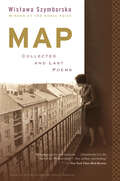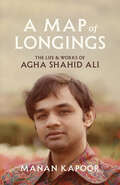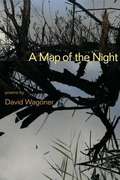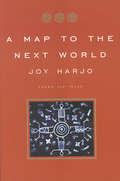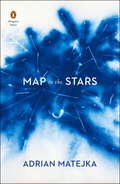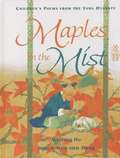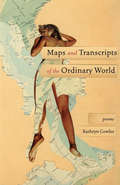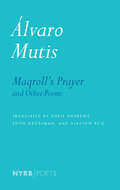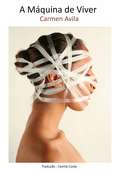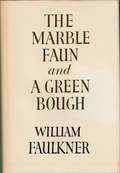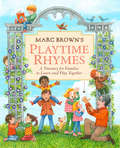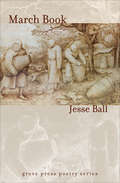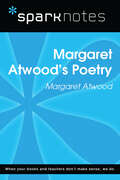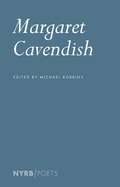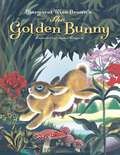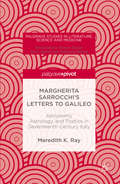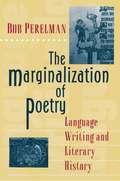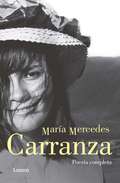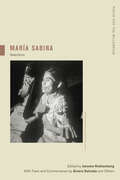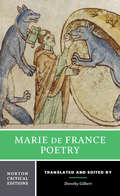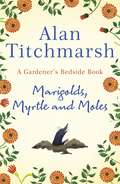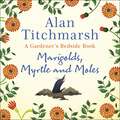- Table View
- List View
Map: Collected and Last Poems
by Wislawa Szymborska“NobelLaureate Szymborska’s gorgeous posthumous collection . . . includes more than 250 poems . . . This is a brilliant and important collection.”—Booklist, starred reviewOne of Europe’s greatest recent poets is also its wisest, wittiest, and most accessible. Nobel Prize–winner Wislawa Szymborska draws us in with her unexpected, unassuming humor. Her elegant, precise poems pose questions we never thought to ask. “If you want the world in a nutshell,” a Polish critic remarks, “try Szymborska.” But the world held in these lapidary poems is larger than the one we thought we knew. Carefully edited by her longtime, award-winning translator, Clare Cavanagh, the poems in Map trace Szymborska’s work until her death in 2012. Of the approximately 250 poems included here, nearly forty are newly translated; thirteen represent the entirety of the poet’s last Polish collection, Enough, never before published in English. Map is the first English publication of Szymborska’s work since the acclaimed Here, and it offers her devoted readers a welcome return to her “ironic elegance” (The New Yorker).
A Map of Longings: The Life and Works of Agha Shahid Ali
by Manan KapoorThe beautifully written first biography of one of the world’s finest twentieth-century poets Agha Shahid Ali (1949–2001) was one of the most celebrated American poets of the latter twentieth century, and his works have touched millions of lives around the world. Traversing multiple geographies, cultures, religions, and traditions, he mapped the varied landscapes of the Indian subcontinent and the United States. In this biography, Manan Kapoor narrates Shahid’s evolution, following in the footsteps of the “Beloved Witness” from Kashmir and New Delhi to the American Southwest and Massachusetts. He charts Shahid’s friendships with literary figures such as James Merrill, Salman Rushdie, and Edward Said; explores how Shahid responded to events around the world, including the partition of the Indian subcontinent and the AIDS epidemic in America; and draws on unpublished materials and in-depth interviews to reveal the experiences and relationships that informed his poetry. Hailed upon its release in India as “lush” and “poetic,” A Map of Longings is the story of an extraordinary poet, the works he left behind, and the legacy of his singular poetic vision.
A Map of the Night
by David WagonerDavid Wagoner's wide-ranging poetry buzzes and swells with life. Woods, streams, and fields fascinate him--he happily admits his devotion to Thoreau--but so do people and their habits, dear friends and family, the odd poet, and strangers who become even stranger when looked at closely. In this new collection, Wagoner catches the mixed feelings of a long drive, the sensations of walking against a current, the difficulty of writing poetry with noisily amorous neighbors, and many more uniquely familiar experiences.
A Map to the Next World: Poems and Tales
by Joy HarjoIn her fifth book, Joy Harjo, one of our foremost Native American voices, melds memories, dream visions, myths, and stories from America's brutal history into a poetic whole. To view text with line endings as poet intended, please set font size to the smallest size on your device.
Map to the Stars
by Adrian MatejkaA resonant new collection of poetry from Adrian Matejka, author of The Big Smoke, a finalist for The Pulitzer Prize and the National Book Award Map to the Stars, the fourth poetry collection from National Book Award and Pulitzer Prize finalist Adrian Matejka, navigates the tensions between race, geography, and poverty in America during the Reagan Era. In the time of space shuttles and the Strategic Defense Initiative, outer space is the only place equality seems possible, even as the stars serve to both guide and obscure the earthly complexities of masculinity and migration. In Matejka's poems, hope is the link between the convoluted realities of being poor and the inspiring possibilities of transcendence and escape—whether it comes from Star Trek, the dream of being one of the first black astronauts, or Sun Ra's cosmic jazz.From the Trade Paperback edition.
Maples In The Mist
by Minfong Ho Jean TsengThe supreme beauty of Tang Dynasty poetry is captured in lucid translations and charming brush paintigs. A treasure of a book --it is a classic. --Nien Cheng, author of Life and Death in Shanghai.
Mapping Mythologies
by Marilyn ButlerIn this groundbreaking work of revisionary literary history, Marilyn Butler traces the imagining of alternative versions of the nation in eighteenth-century Britain, both in the works of a series of well-known poets (Akenside, Thomson, Gray, Collins, Chatterton, Macpherson, Blake) and in the differing accounts of the national culture offered by eighteenth-century antiquarians and literary historians. She charts the beginnings in eighteenth-century Britain of what is now called cultural history, exploring how and why it developed, and the issues at stake. Her interest is not simply in a succession of great writers, but in the politics of a wider culture, in which writers, scholars, publishers, editors, booksellers, readers all play their parts. For more than thirty years, Marilyn Butler was a towering presence in eighteenth-century and romantic studies, and this major work is published for the first time.
Maps and Transcripts of the Ordinary World: Poems
by Kathryn CowlesThis “innovative” poetry collection “uses text and image to explore the strangeness inherent in everyday experience” (Publishers Weekly). “I take seven photographs turning / in a circle, a panorama, / but how will I place them hanging / on a wall back home? Something already slipping,” Kathryn Cowles writes. These poems surround a central question: how much of a moment is captured by the mechanisms we use to describe it? How much of the shore, the birds, the feeling? In pursuit of an answer, Cowles leads readers through a sequence of distinct landscapes (islands, plains, mountains, oceans), puzzling over and embracing the valley between literature and lived experience. Along the way, Cowles’s language is light but recursive, rotating around beloved places: a new house, a garden, a seemingly endless plane ride, a battery-operated spit of lamb, a photograph of a battery-operated spit of lamb, dogs, Sue, Ohio. This collection defamiliarizes and refamiliarizes the “actual world,” while navigating toward the clear and substantial stuff of living. Arresting on both visual and textual levels, Maps and Transcripts of the Ordinary World isa collection that lingers in memory and place, in the unsettled distance between reality and its transcriptions.“Deftly shows that as we struggle to transform into language what we see and hear and feel, the results are inevitably incomplete; there’s a gap between what we want to say and what we actually manage.” —Library Journal“The need to catalog, to document, and to mourn are all active forces in Cowles’s poems . . . a work of grappling with the representational and the real and the thin boundaries between them.” —Colorado Review
Maqroll's Prayer and Other Poems
by Alvaro MutisÁlvaro Mutis&’s fantastical, gripping, unnerving tales of the exploits and adventures of Maqroll, the Gaviero, or watchman, an inveterate wanderer both on land and sea, are among the most beloved works of twentieth-century Latin American fiction. Like the stories of Borges, like the novels of Mutis&’s great friend García Márquez, they conjure a strange world of their own which also holds up a mirror, disquieting and revelatory, to the everyday world we imagine we know. If Maqroll eventually found his way into prose, he began his career in poetry, and it was as a poet that Mutis first made his name as a writer. This selection of Mutis&’s haunting verse, with its evocations, now lush, now stark, of the landscapes of South America, with its prayers to an unknown god, is the first to be published in English. Rendered by Chris Andrews, Edith Grossman, and Alastair Reid, masters of the art of translation, these resonant poems offer a dazzling new entry into the imagination of one of the most original and memorable writers of modern times.
A máquina de viver
by Carmen AvilaEsta obra foi escrita com o apoio da bolsa “Jovens Criadores” do Fundo Estadual para a Cultura e as Artes de 2005 do estado de Coahuila de Zaragoza. Foi finalista do XIII Concurso de Poesia María del Villar (Navarra, Espanha) e obteve menção honrosa no Prêmio Nacional de Poesia Jovem Francisco Cervantes Vidal de 2008, em Querétaro, México.
Marc Brown's Playtime Rhymes: A Treasury for Families to Learn and Play Together
by Marc BrownFingers ready?Fingers set?Fingers play!It's time for Playtime Rhymes-a treasury of twenty favorite finger rhymes compiled and illustrated by the bestselling and beloved artist Marc Brown for the enjoyment of young and old. From the clever Whoops! Johnny and funny Do Your Ears Hang Low? to the irrepressible Itsy-Bitsy Spider and rousing Wheels on the Bus, these are rhymes to say and sing aloud, each with pictorial instructions for the correlating finger movements.An interactive experience at its very best, Playtime Rhymes will get little hands wiggling, jiggling, pointing, pounding, bending, stretching, and dancing as children animate the rhymes, pore over the vibrant pictures, and share the fun with family and friends.
March Book (Grove Press Poetry Ser.)
by Jesse BallMarch Book is a wonder and a revelation. A shockingly assured first collection from young poet Jesse Ball, its elegant lines and penetrating voice present a poetic symphony instead of a simple succession of individual, barely-linked poems. Craftsmanship defines this collection; it is full of perfect line-breaks, tenderly selected words, and inventive pairings. Just as impressive is the breadth and ingenuity of its recurring themes, which crescendo as Ball leads us through his fantastic world, quietly opening doors. In five separate sections we meet beekeepers and parsons, a young woman named Anna in a thin, linen dress and an old scribe transferring the eponymous March Book. We witness a Willy Loman-esque worker who ran out in the noon street / shirt sleeves rolled, and hurried after / that which might have passed only to be told that there's nothing between him and the suddenness of age. While these images achingly inform us of our delicate place in the physical world, others remind us why we still yearn to awake in it every day and make pillows with the down / of stolen geese, build / rooms in terms of the hours of the day. Like a patient Virgil, insistent and confident, Ball escorts us through his mind, and we're lucky to follow.
Margaret Atwood's Poetry (SparkNotes Literature Guide Series)
by SparkNotesMargaret Atwood's Poetry (SparkNotes Literature Guide) by Margaret Atwood Making the reading experience fun! Created by Harvard students for students everywhere, SparkNotes is a new breed of study guide: smarter, better, faster. Geared to what today's students need to know, SparkNotes provides: *Chapter-by-chapter analysis *Explanations of key themes, motifs, and symbols *A review quiz and essay topicsLively and accessible, these guides are perfect for late-night studying and writing papers
Margaret Cavendish: Observations Upon Experimental Philosophy (Cambridge Texts In The History Of Philosophy Ser.)
by Margaret CavendishAn eclectic collection of poetry by one of 17th century England's boldest, smartest, and independent women.Margaret Cavendish, the Duchess of Newcastle-upon-Tyne, was a groundbreaking writer—a utopian visionary, a scientist, a science-fiction pioneer. She moved in philosophical circles that included Thomas Hobbes and René Descartes, and she produced startlingly modern poems unlike anything published in the seventeenth century or since, at once scientific and visionary, full of feminist passion and deep sympathy with the nonhuman world. In recent years, Cavendish has found many new admirers, and this selection of her verse by Michael Robbins is an ideal introduction to her singular poetic world.
Margaret Wise Brown's The Golden Bunny
by Margaret Wise BrownA beautiful gift edition of Margaret Wise Brown's classic! This wonderful collection of bunny stories and poems, by the author of Goodnight Moon, has been reissued for a new generation in a beautiful hardcover edition. Margaret Wise Brown&’s witty writing, featuring bunnies in all seasons, is brought to life with lush, ornamental paintings by Caldecott Medalist Leonard Weisgard. This deluxe picture book will be a special Easter gift for a child, or any fan of Margaret Wise Brown and Leonard Weisgard.
Margherita Sarrocchi's Letters to Galileo: Astronomy, Astrology, and Poetics in Seventeenth-Century Italy (Palgrave Studies in Literature, Science and Medicine)
by Meredith K. RayThis book examines a pivotal moment in the history of science and women’s place in it. Meredith Ray offers the first in-depth study and complete English translation of the fascinating correspondence between Margherita Sarrocchi (1560-1617), a natural philosopher and author of the epic poem, Scanderbeide (1623), and famed astronomer, Galileo Galilei. Their correspondence, undertaken soon after the publication of Galileo’s Sidereus Nuncius, reveals how Sarrocchi approached Galileo for his help revising her epic poem, offering, in return, her endorsement of his recent telescopic discoveries. Situated against the vibrant and often contentious backdrop of early modern intellectual and academic culture, their letters illustrate, in miniature, that the Scientific Revolution was, in fact, the product of a long evolution with roots in the deep connections between literary and scientific exchanges.
The Marginalization of Poetry: Language Writing and Literary History
by Bob PerelmanLanguage writing, the most controversial avant-garde movement in contemporary American poetry, appeals strongly to writers and readers interested in the politics of postmodernism and in iconoclastic poetic form. Drawing on materials from popular culture, avoiding the standard stylistic indications of poetic lyricism, and using nonsequential sentences are some of the ways in which language writers make poetry a more open and participatory process for the readers. Reading this kind of writing, however, may not come easily in a culture where poetry is treated as property of a special class. It is this barrier that Bob Perelman seeks to break down in this fascinating and comprehensive account of the language writing movement. A leading language writer himself, Perelman offers insights into the history of the movement and discusses the political and theoretical implications of the writing. He provides detailed readings of work by Lyn Hejinian, Ron Silliman, and Charles Bernstein, among many others, and compares it to a wide range of other contemporary and modern American poetry. A variety of issues are addressed in the following chapters: "The Marginalization of Poetry," "Language Writing and Literary History," "Here and Now on Paper," "Parataxis and Narrative: The New Sentence in Theory and Practice," "Write the Power," "Building a More Powerful Vocabulary: Bruce Andrews and the World (Trade Center)," "This Page Is My Page, This Page Is Your Page: Gender and Mapping," "An Alphabet of Literary Criticism," and "A False Account of Talking with Frank O'Hara and Roland Barthes in Philadelphia."
María Mercedes Carranza. Poesía completa: María Mercedes Carranza. Poesía completa
by María Mercedes CarranzaLumen publica la obra completa de María Mercedes Carranza, una de las poetas más importantes del siglo XX en Colombia. En este libro el lector encontrará toda la obra de María Mercedes Carranza, desde su primer poemario Vainas y otros poemas (1973), hasta cinco poemas inéditos del que hubiera sido su último libro, Los placeres verdaderos. Su obra poética nos sorprende porque consigue hablar con las palabras precisas de la vida cotidiana, del amor y el desamor, de la soledad y de la muerte, pero sobre todo por la voz rebelde y a la vez profundamente humana con la que escribió sobre la guerra en Colombia. En sus propias palabras: "en estos momentos en los que el país se desangra (...), la poesía es más necesaria que nunca, porque cuando se interrumpen el diálogo y la comunicación, se remplazan las palabras por las balas y ocurre la violencia. Y la poesía es esencialmente, y nada más, comunicación. El país hoy necesita del diálogo, es decir necesita de la poesía". La crítica ha dicho: "María Mercedes ha buscado con ardor su propio lenguaje y ha combatido con dureza para llegar a ser una con él (...) Todas las palabras que están a su alcance pugnarán por salir a la luz: llegan a lograrlo sólo (...) las que se confunden con la intimidad del ser". Fernando Charry Lara "... belicosa es María Mercedes Carranza, pero de una belicosidad en la que pudorosamente se arropa el alma vulnerable y sensitiva de los poetas desterrados". Ernesto Volkening "...su principalísima preocupación es hallar las palabras para volver poesía su situación particular y concreta, (...) para poder escribir (...) sobre hechos que antes eran pura prosa de la vida cotidiana y que han hallado aquí la justa palabra que los nombra". Darío Jaramillo Agudelo "Como poeta radicalmente libertaria, en comunión no intuida, sino vivida, desde el alma propia y desde su propia y visceral experiencia, escribió contra la guerra y el escándalo moral que significa la indiferencia ante ella". Mario Rivero
María Sabina: Selections (Poets for the Millennium #2)
by Maria SabinaA shaman and visionary—not a poet in any ordinary sense—María Sabina lived out her life in the Oaxacan mountain village of Huautla de Jiménez, and yet her words, always sung or spoken, have carried far and wide, a principal instance and a powerful reminder of how poetry can arise in a context far removed from literature as such. Seeking cures through language—with the help of Psilocybe mushrooms, said to be the source of language itself—she was, as Henry Munn describes her, "a genius [who] emerges from the soil of the communal, religious-therapeutic folk poetry of a native Mexican campesino people." She may also have been, in the words of the Mexican poet Homero Aridjis, "the greatest visionary poet in twentieth-century Latin America." These selections include a generous presentation from Sabina's recorded chants and a complete English translation of her oral autobiography, her vida, as written and arranged in her native language by her fellow Mazatec Alvaro Estrada. Accompanying essays and poems include an introduction to "The Life of María Sabina" by Estrada, an early description of a nighttime "mushroom velada" by the ethnomycologist R. Gordon Wasson, an essay by Henry Munn relating the language of Sabina's chants to those of other Mazatec shamans, and more.
Marie de France Poetry
by Dorothy GilbertHonorable Mention for the 2015 Modern Language Association's Aldo and Jeanne Scaglione Prize For Translation of a Literary WorkMarie de France was a medieval poet who was probably born in France and who lived in England during the twelfth century. Prominent among the earliest poets writing in the French vernacular, Marie de France helped shape the style and genres of later medieval poetry. This Norton Critical Edition includes all of Marie's lais (short narrative verse poems); selected fables; and a generous excerpt from Saint Patrick's Purgatory, a long poem based on a well-known medieval legend. Each text is accompanied by detailed explanatory annotations. For comparative reading, two lais, "Bisclavret" and "Y#65533;nec," are accompanied by Marie's facing-page originals. "Backgrounds and Contexts" is thematically organized to provide readers with a clear sense of Marie's inspirations. Topics include "The Supernatural," "Love and Romance," "Medical Traditions," "Fable Sources and Analogues: Similar Themes," and "Purgatory and the Afterlife. " Ovid, Chaucer, Andreas Capellanus, Boccaccio, Aristotle, and Bede are among the authors included. From the wealth of scholarly work published on Marie de France, Dorothy Gilbert has chosen excerpts from nine pieces that address issues of history and authorship as well as major themes in the lais, fables, and Saint Patrick's Purgatory. The contributors are Thomas Warton, Abb#65533; Gervais de la Rue, Joseph Bedier, Leo Spitzer, R. Howard Bloch, E. A. Francis, Jill Mann, and Jacques Le Goff. A selected bibliography is also included.
Marigolds, Myrtle and Moles: A Gardener's Bedside Book - the perfect book for gardening self-isolators
by Alan Titchmarsh'Charming miscellany of rhymes and reflections celebrating the garden'CHOICE***The perfect bedside book for the green-fingered - hilarious and touching poems on a gardening theme written and introduced by the nation's favourite gardener and presenter of ITV's Grow Your Own At Home and Love Your Garden, Channel 5's Secrets of the National Trust and with his own show on Classic FM.From touching poems on the peony, the snowdrop and the sweet pea to hilarious verse on Emily the Gardener and the Garden Design Course, this is Alan Titchmarsh's heartfelt and entertaining celebration of his favourite space - the garden.
Marigolds, Myrtle and Moles: A Gardener's Bedside Book - the perfect book for gardening self-isolators
by Alan Titchmarsh'Charming miscellany of rhymes and reflections celebrating the garden'CHOICE***The perfect bedside book for the green-fingered - hilarious and touching poems on a gardening theme written and introduced by the nation's favourite gardener and presenter of ITV's Grow Your Own At Home and Love Your Garden, Channel 5's Secrets of the National Trust and with his own show on Classic FM.From touching poems on the peony, the snowdrop and the sweet pea to hilarious verse on Emily the Gardener and the Garden Design Course, this is Alan Titchmarsh's heartfelt and entertaining celebration of his favourite space - the garden.
Marigolds, Myrtle and Moles: A Gardener's Bedside Book - the perfect book for gardening self-isolators
by Alan TitchmarshThe perfect listen for the green-fingered - hilarious and touching poems on a gardening theme written and introduced by the nation's favourite gardener and presenter of ITV's Love Your Garden, Channel 5's Secrets of the National Trust and with his own show on Classic FM.From touching poems on the peony, the snowdrop and the sweet pea to hilarious verse on Emily the Gardener and the Garden Design Course, this is Alan Titchmarsh's heartfelt and entertaining celebration of his favourite space - the garden.(P) 2020 Hodder & Stoughton Ltd

